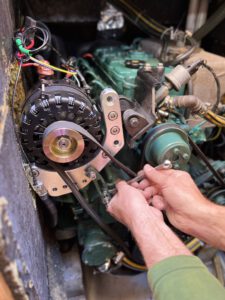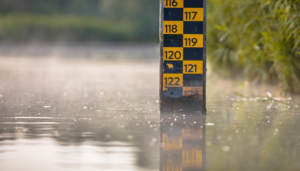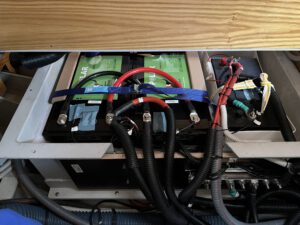In my previous blog post, I mentioned that I am planning to switch from a gas-powered stove and oven to an electric induction stove and oven on my boat. I purchased two lithium iron batteries with a capacity of 460Ah at 12.8V, which I plan to use in parallel with a 3kW inverter to provide 230V of electrical power for the stove and oven. The combined capacity of the batteries is 11.7kWh, which some of you have suggested may be more than I need. To test my cooking habits and determine the necessary electric power, I decided to conduct a few tests.
The Measurement

To measure the necessary power consumption, I conducted the cooking tests at home where I have access to an induction stove and electric oven, although they may not be the same as the ones I plan to use on the boat. Fortunately, I was able to record the electrical consumption during these tests, which was very helpful in determining the necessary power requirements for cooking on the boat.
The cooking was done to prepare a meal for two people, on an average day.
Breakfast
For breakfast, I used the oven to warm up two croissants and brewed a cup of coffee.
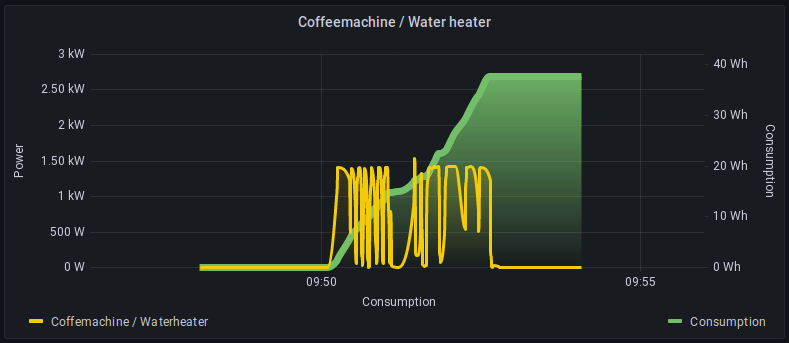
Two cups of coffee were made using an automatic coffee machine.
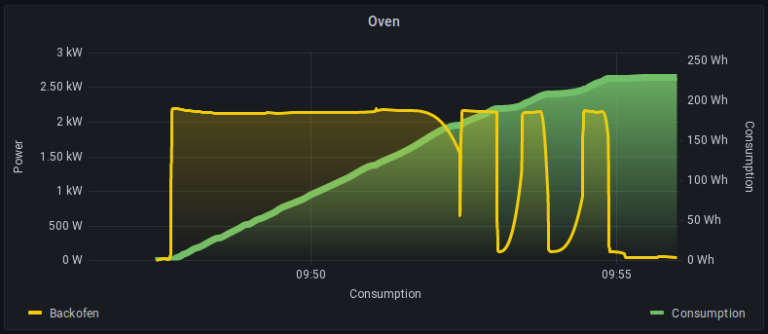
Two two croissants in the oven 10 min 160°C
For breakfast, 37+225 = 262Wh were needed.
Lunch
For lunch I roasted a duck filet with Potato Klöse and red cabbage. The duck (just the filet) required 30 minutes of cooking time in the oven, while the frozen cabbage and Potato Klöse were cooked on the stove.
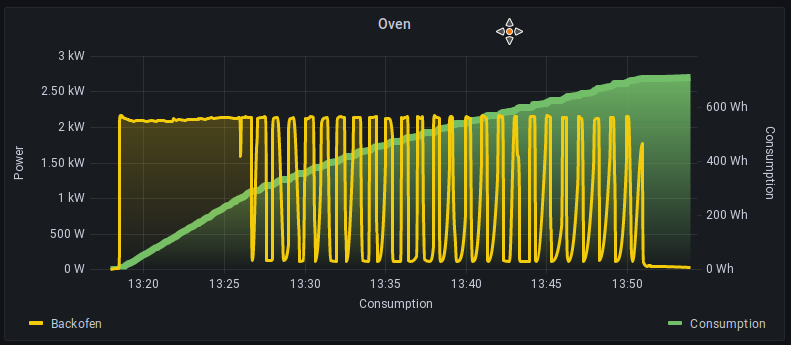
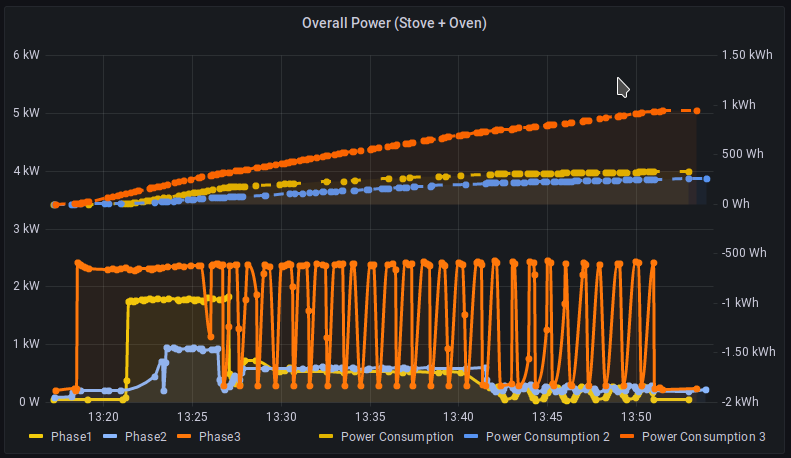
The duck (just the filet) required 30 minutes at 200°C 1kWh [orange curve]
The 4 Potato Klöse in 100°C Water 400Wh [yellow curve]
The the frozen cabbage on the stove 350Wh [blue curve]
At the end lunch + a necessary coffee used 1,8kW.
I captured the system data during the cooking tests, but unfortunately, I forgot to snap a picture of the delectable meal.
Dinner
For dinner, I simply warmed up some bread (brötchen) in the oven and I boiled 1 liter of water for tea.
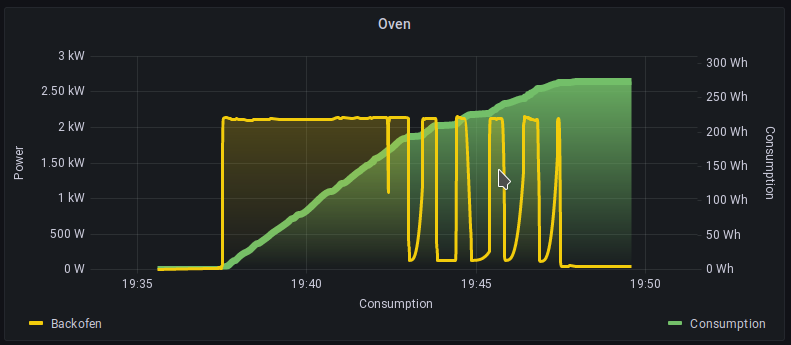
The buns (2 small Brötchen) were frozen so they took 16 minutes at 160C so 270Wh
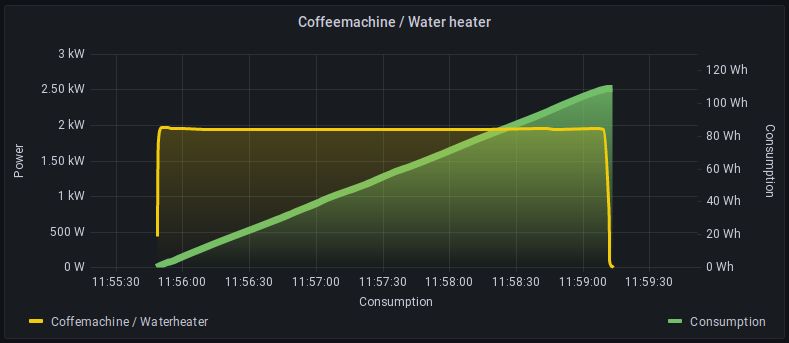
1 Liter Water heated in the electric kettle with 110Wh
For dinner, I just needed 380Wh.
Conclusion
During an average day for two people, the total amount of electric power consumed for cooking was 2.4kWh. Considering the 95% efficiency of the inverter, approximately 2.55kWh of power will be drawn from the batteries. Assuming that 50% of the battery capacity is required for cooking and the remaining 50% for other onboard systems such as the autopilot, fridge, and navigation system, the total battery capacity should be sufficient for two days.
That sound not too bad!
Although everything seems to be in order, there is one thing that I have observed, which requires an additional purchase. The oven requires more than 2kW of power. Even if I opt for a slightly smaller oven on the boat, using it simultaneously with the stove will exceed the 2kW limit of the current inverter/charger. Therefore, I will have to purchase and install a separate inverter for the oven.

If you followed me to the end of this blog this is for you:
For readers who enjoy hiking and yoga, there are T-shirts available that cater to these interests.
at Le Coeur Vert Boutique



